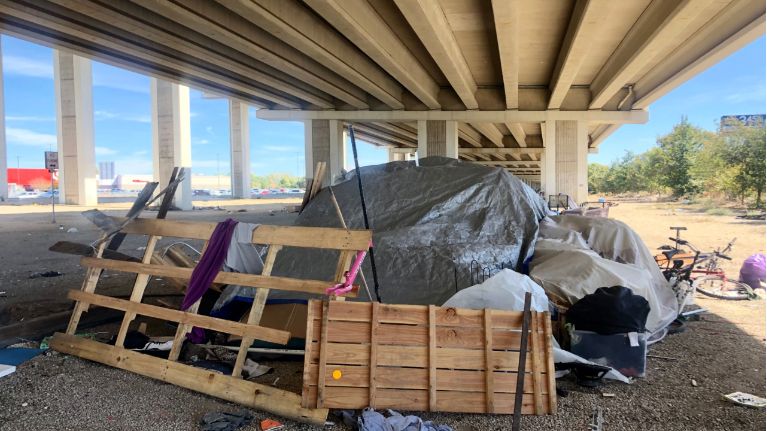AUSTIN, Texas — There is a renewed push for more affordable housing after a recent Supreme Court ruling on public camping. Justices ruled that cities and states can enforce bans against homeless encampments on public property and fine people experiencing homelessness.
Advocates for affordable housing and who are against the ban on homeless encampments rallied at Austin City Hall Tuesday.
“My homelessness was over a decade ago and it’s vastly different today than it was then,” said JJ Ramirez with VOCAL-TX.
Ramirez says many of Austin’s shelters are full, driving people experiencing homelessness to camp in dangerous or remote areas. Austin voters approved Proposition B in 2021, which banned homeless encampments on public property.
“To have nowhere to go and then to get a ticket for just merely existing is cruel, is extremely cruel,” said Ramirez.
The same can be said about other Texas cities, such as Forth Worth, where a camping ban has been in place since 2019. People line the streets hoping to find a good night's sleep.
“It’s a living hell,” said Victoria Marshall, an unhoused person.
Public camping also violates a 2021 state law. Someone caught doing so faces up to a $500 fine. A recent Supreme Court ruling backed this law by allowing cities and states to enforce bans on sleeping in public places.
“They provide significant momentum for cities like Austin to say homeless camping is a disaster,” said Matt Mackowiak with the Save Austin Now PAC
Mackowiak is celebrating the Supreme Court ruling and hopes that meaningful solutions will come from Austin’s city leaders.
“They need to be receiving help. You’re not receiving help when you live under a bridge or when you’re in a dirty, filthy, drug-infested encampment in a wooded area somewhere,” he said.
Helping an unhoused population is not a one-size-fits-all solution. There are no shelters in Grand Prairie, so volunteers coordinate with police to allow clean homeless encampments to remain up.
“They cannot sleep on public land, but they have to sleep. So where are they going to sleep? They’re going to find hidden places,” said Tammy Chan with Grand Prairie Homeless Outreach Organization.
Chan says keeping unhoused people in one location helps connect them to permanent housing.
“I don’t think it’s a government problem to solve. We think it’s our a community to solve it,” she said.
Austin City Council will start working on the city budget this summer. Advocates hope the city will allocate money toward sustainable solutions for the unhoused community.



